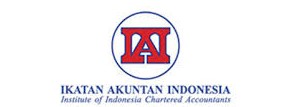Analisis Tingkat Konservatisme Akuntansi (Conditional) Selama Pandemi Covid-19
Abstract
This study aims to analyze differences in accounting conservatism before and during the Covid-19 pandemic. This research is a comparative study that aims to compare one or more variables in two or more different samples or more than one. This study uses secondary data obtained from the website www.idx.co.id. The population in this study was listed on the Indonesia Stock Exchange (IDX) during 2018 - 2021. This study used a purposive sampling technique and obtained 412 companies. The data in this study were tested using Kolmogorov Smirnov normality and hypothesis testing using the Wilcoxon Signed Rank Test for conservatism proxy by used earning/stock return relations measure method. The results of this study indicate that there is no difference in conditional conservatism before and during the Covid-19 pandemic.
References
Ahmed, A. S., Billings, B. K., Morton, R. M., & Stanford-harris, M. (2002). The Role of Accounting Conservatism in Mitigating Bondholder-Shareholder Conflicts over Dividend Policy and in Reducing Debt Costs. The Accounting Review, 77(4), 867–890. https://doi.org/10.1002/9781119199878.ch2
Ahmed HA, Hussainey, K. (2017). Is Egyptian Corporate Financial Reporting Becoming More Conservative? Journal of Financial Reporting and Accounting. https://doi.org/https://doi.org/10.1108/JFRA-06-2016-0049
Basu, S. (1997). The Conservatism Principle and the Asymmetric Timeliness of Earnings. Journal of Accounting and Economics, 24, 3–37. https://doi.org/10.1111/j.1911-3846.2011.01151.x
BBC News. (2020). Krisis ekonomi akibat Covid-19: IMF perkirakan “luka ekonomi” karena krisis global akibat pandemi virus corona lebih buruk dari perkiraan. Www.Bbc.Com. https://www.bbc.com/indonesia/dunia-53168814
Budiyanti, E. (2020). Dampak Virus Corona Terhadap Sektor Perdagangan Dan Pariwisata Indonesia. Kajian Bidang Ekonomi Dan Kebijakan Publik, XII(4), 19–24. http://berkas.dpr.go.id/puslit/files/info_singkat/Info Singkat-XII-4-II-P3DI-Februari-2020-219.pdf
Cerqueira, A., & Pereira, C. (2020). The effect of economic conditions on accounting conservatism under IFRS in Europe. Review of Economic Perspectives, 20(2), 137–169. https://doi.org/10.2478/revecp-2020-0007
Cui, L., Kent, P., Kim, S., & Li, S. (2021). Accounting conservatism and firm performance during the COVID-19 pandemic. Accounting and Finance, 61(4), 5543–5579. https://doi.org/10.1111/acfi.12767
Devi, S., Warasniasih, N. M. S., & Masdiantini, P. R. (2020). The Impact of COVID-19 Pandemic on the Financial Performance of Firms on the Indonesia Stock Exchange. Journal of Economics, Business, & Accountancy Ventura, 23(2). https://doi.org/10.14414/jebav.v23i2.2313
Fala, D. A. S. (2007). Pengaruh Konservatisma Akuntansi Terhadap Penilaian Ekuitas Perusahaan Dimoderasi Oleh Good Corporate Governance. Simposium Nasional Akuntansi X, 1–23.
Firmansyah, A., & Ardiansyah, R. (2021). Bagaimana Praktik Manajemen Laba Dan Penghindaran Pajak Sebelum Dan Setelah Pandemi Covid19 Di Indonesia? Bina Ekonomi, 24(2), 31–51. https://doi.org/10.26593/be.v24i1.5075.87-106
Hanoatubun, S., Kristen, U., Wacana, S., & Indonesia, P. (2020). Universitas muhammadiyah enrekan. 2(1), 146–153.
Hejranijamil, M., Hejranijamil, A., & Shekarkhah, J. (2020). Accounting conservatism and uncertainty in business environments; using financial data of listed companies in the Tehran stock exchange. Asian Journal of Accounting Research, 5(2), 179–194. https://doi.org/10.1108/AJAR-04-2020-0027
Indayani, S., & Hartono, B. (2020). Analisis pengangguran dan pertumbuhan ekonomi sebagai akibat pandemi covid-19. Jurnal Ekonomi & Manajemen Universitas Bina Sarana Infoematika, 18(2), 201–208. https://ejournal.bsi.ac.id/ejurnal/index.php/perspektif/article/view/8581
Kaya Idil, A. D. (2021). Accounting Conservatism and Sustainbility Reporting In Changing Times: Evidence From Turkish Banking Industry. Muhasebe Bilim Dünyası Dergisi, 23, 1–23.
Lassoued, N., & I, K. (2021). Impact of COVID-19 Pandemic on Earnings Management: An Evidence from Financial Reporting in European Firms. Global Business Review. https://doi.org/https://doi.org./101177/09721509211053491
Purwasih, D. (2020). Pengaruh Mekanisme Corporate Governance, Ukuran Perusahaan dan Debt to Equity Ratio terhadap Konservatisme Akuntansi. JABI (Jurnal Akuntansi Berkelanjutan Indonesia), 3(3), 309. https://doi.org/10.32493/jabi.v3i3.y2020.p309-326
Scott, W. R. (2015). Financial Accounting Theory (7th ed.). Pearson.
Sodan, S., Barac, Z. A., & Vuko, T. (2013). Lessons from financial crisis: Has accounting in central and eastern europe become more conservative? Economic Research-Ekonomska Istrazivanja , 26(March), 399–414. https://doi.org/10.1080/1331677X.2013.11517659
Unpad. (2020). Pusat Studi Akuntansi Unpad Sampaikan Rekomendasi Penyusunan Laporan Keuangan di Tengah Pandemi. Unpad.Ac.Id. https://www.unpad.ac.id/2020/04/pusat-studi-akuntansi-unpad-sampaikan-rekomendasi-penyusunan-laporan-keuangan-di-tengah-pandemi-coronavirus/
Utthavi, W. H., & Sumiari, K. N. (2021). Konservatisma Akuntansi Pada Era Pandemi Covid-19. Jurnal Bisnis Dan Kewirausahaan, 17(3), 260–268. https://doi.org/10.31940/jbk.v17i3.260-268
Watts, R. L. (2003). Conservatism in Accounting Part I: Explanations and Implications. Accounting Horizons, 17(3), 207–221.
Zhong, Y., & Li, W. (2017). Accounting Conservatism: A Literature Review. Australian Accounting Review, 27(2), 195–213. https://doi.org/10.1111/auar.12107







.png)
.png)
